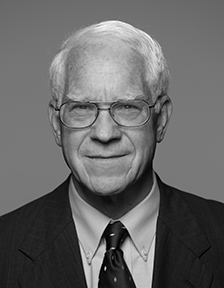Technical Support Information – Desktop Computers
In order to view the webcast, you must have a currently supported HTML5 compliant web browser with standards-based media playback support on supported versions of the Windows and Macintosh operating systems.
Video webcasts require that you have a broadband Internet connection with at least 600kbps of download connectivity. If you are having difficulty with playback of a video webcast, for example playback is buffering frequently, please check your internet connection. Downloadable audio-only MP3 files are available for each session.
If you are still having trouble viewing the webcasts, please carefully review the detailed System Requirements and Troubleshooting Steps webpage.
Using the Capital Reach Media Player
For each session, there may be two different versions of the media player. Some sessions may include video of the presenter.
- Slide video – video of the speaker's slide presentation is the default stream displayed in the player. This option displays all speaker mouse movements and videos included in presentations.
- Audio and slides – audio of the speaker's presentation is the default stream in the player. Static slide images in the slide presentations are synchronized to the audio stream.
Navigating the Presentation Webcast
The player offers several tools to navigate the presentation:
- "Browse Slides" icon – select the browse slides icon to navigate to any slide in the presentation by selecting the slide thumbnail image.
Player Tools
- "Speaker Information" icon – if available, displays information about the speakers and presentations in the session.
- "Download Media" icon – select this button to download an audio-only file of the session.
-
Playback Controls
- Play/Pause button – select this button to play or pause the default media stream of the player.
- Stop button – select this button to stop the default media stream of the player.
Mobile Device Support
Presentation playback is available on supported versions of Apple iOS devices (Apple iPad and iPhone) and Android devices with an enabled Internet connection and a currently supported web browser with standards based media playback support. Users of these devices can stream sessions to their mobile device. Users have the option to stream either slide presentation video or audio-only from the session. Please note that some advanced interactivity features of the desktop player may not be supported on the Apple iOS mobile devices.


Media quality is automatically adjusted based on the speed of your internet connection. If you would prefer to control the quality explicitly, please choose from the options above.